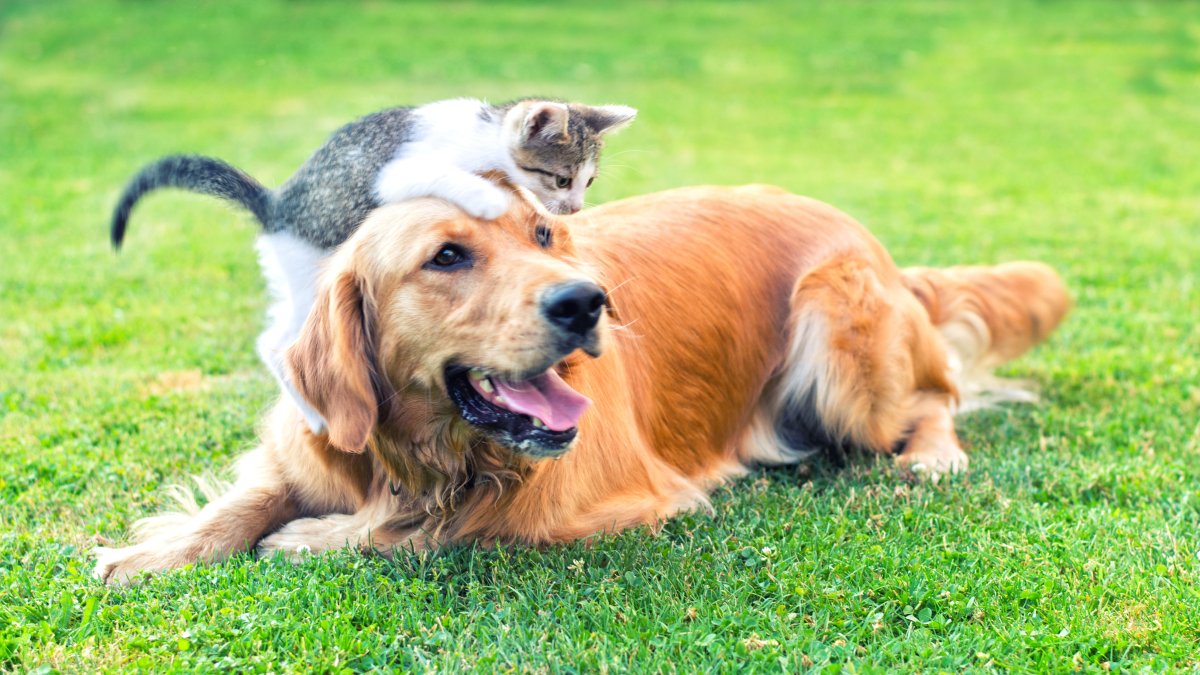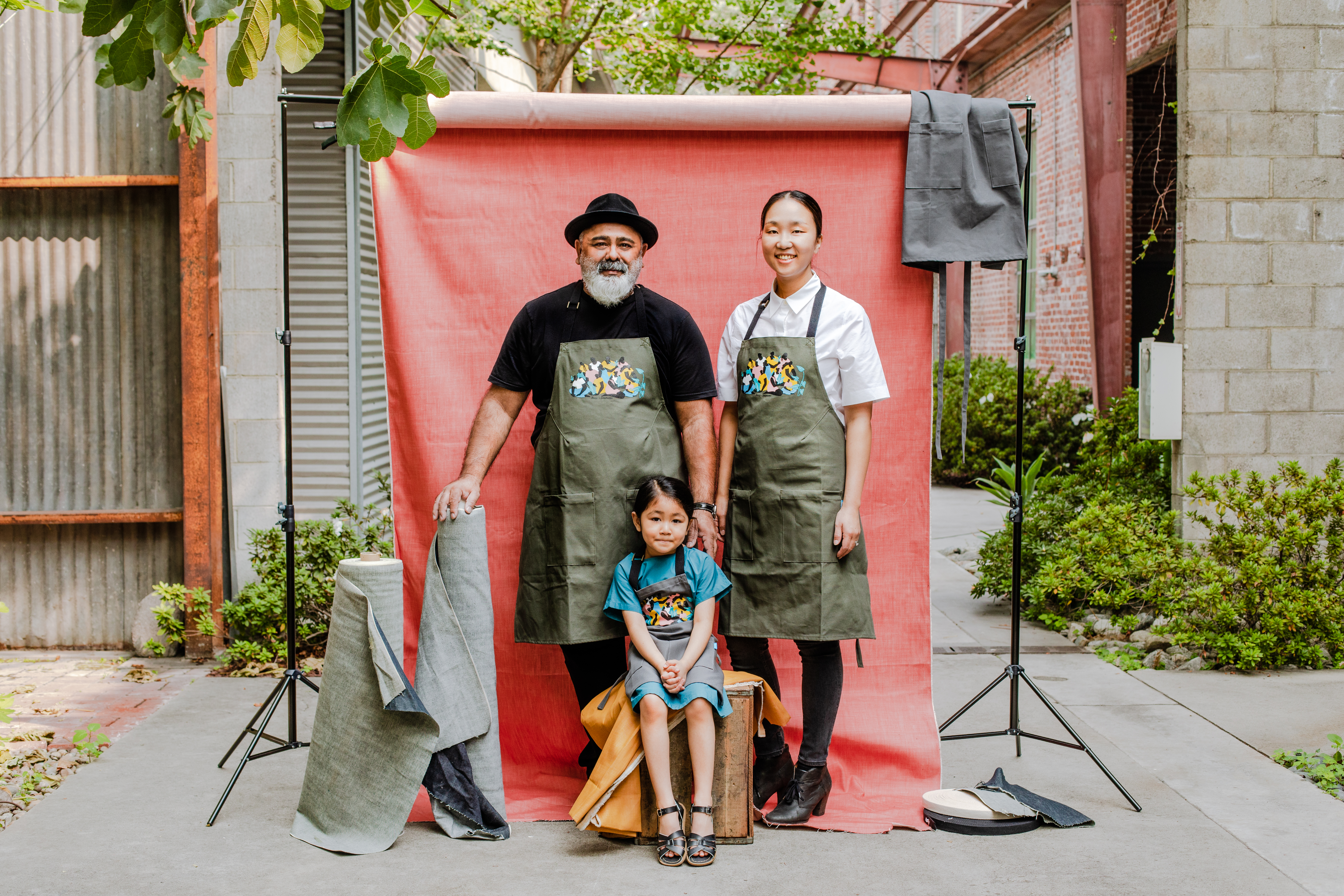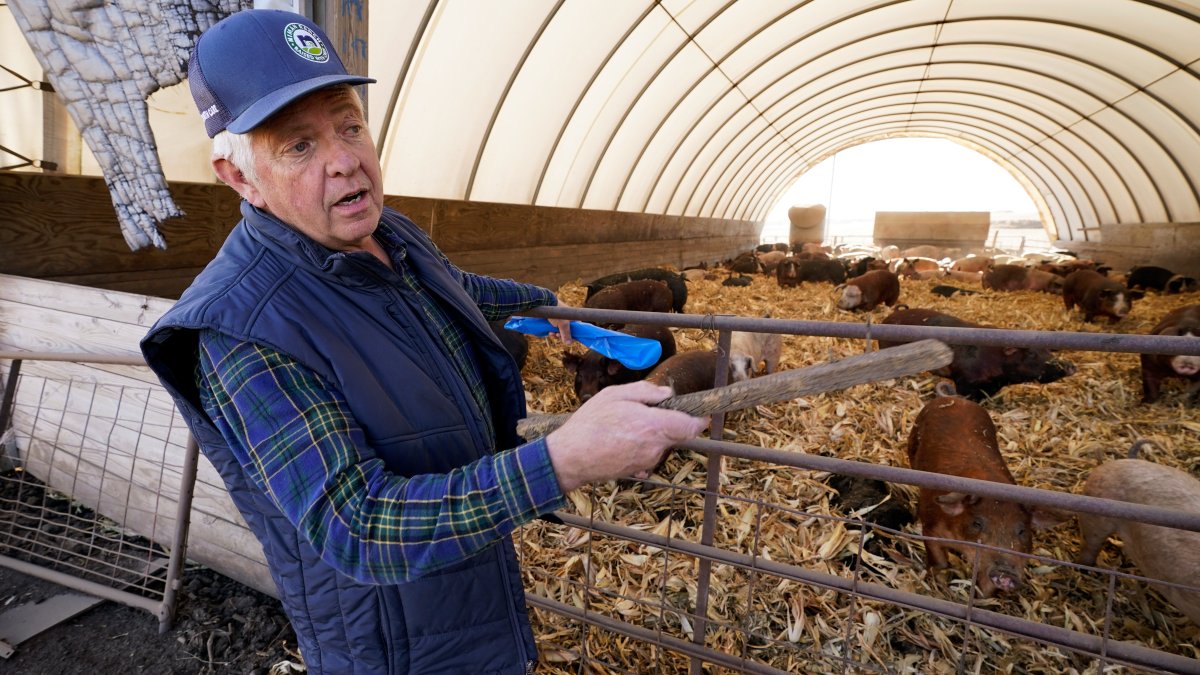Pet homeowners know all too nicely the look they get from their everlasting mates as quickly as a meal hits the desk from the kitchen earlier than they will sneak a chew.
However as a lot as your canine or cat could beg, there are some meals that you simply can’t feed your pet.
As the vacations approaches and it turns into tougher and tougher to withstand the pet eyes you get whereas carving the turkey, listed below are among the meals you possibly can share and among the meals you actually should not.
Which meals are protected for pets?
In response to the American Society for the Prevention of Cruelty to Animals, there are a selection of meals that pets can safely eat. However it doesn’t matter what you feed them to snack on, it is essential to take it simple.
Animals “ought to get most of their eating regimen from their regular eating regimen,” says the ASPCA on its web site. “Snacks should not make up greater than 5 p.c of your every day caloric consumption, so hold portion sizes small.”
And with human meals, which are usually extra sugary or fatty than meals made for animals, a “digestive dysfunction” can creep up on you and your pet.
With this in thoughts, pets can safely eat:
- Slightly greens, “like carrots, celery, broccoli, inexperienced beans, cauliflower or cooked (canned) pumpkin,” in line with the ASPCA. They’re all protected meals for canines and cats, and all will be eaten uncooked, though uncooked pumpkin will be troublesome for canines and cats to digest. In response to the American Kennel Membership, canned cooked pumpkin could even present fiber, which will help canines with digestive issues.
- Some fruits, reminiscent of “apples, bananas, cucumbers, pineapples, melons, blueberries, strawberries, and kiwi”, are protected for canines and cats.
- Popcorn is protected for pets, though the ASPCA advises skipping “extreme quantities” of butter and salt.
- cheese, in small portions, is protected for pets as a snack and as a “tablet disguise” for animals who’re choosy about their remedy. An excessive amount of, the ASPCA warns, can result in an upset abdomen.
- meat, even in small parts, are protected to share. The ASPCA recommends “lean-cooked rooster, turkey, beef, or pork that is freed from bones and spices,” and advises staying away from super-salty bacon and meat for lunch.
- peanut butter is protected to share with pets so long as you test the label for xylitol. The sugar substitute is extremely poisonous to canines and might even be deadly. So long as your peanut butter is xylitol free, you possibly can divide it.
What meals are unsafe for pets?
PetSmart retail chain has suggestions for pet homeowners on their web site, together with an inventory of meals that aren’t protected for canines. The American Kennel Membership, the ASPCA and the Humane Society of the USA additionally present info on what to avoid your four-legged pal.
Among the many snacks that you simply should not share:
- chocolatewhich is among the extra well-known harmful snacks for canines. In response to PetSmart, the theobromine in chocolate can overstimulate canine hearts. The candy deal with is toxic to cats too.
- Boiled boneswhich splinter when canines gnaw and might lodge within the gums, throat and intestines.
- Onions, garlic, shallots and chives all include thiosulfate, a chemical that – in canines – can harm pink blood cells and trigger digestive and respiration issues. Trupanion pet medical insurance firm stated in a press release that every one vacation dishes with onions or garlic ought to keep out of your pet’s mouth, irrespective of how a lot they drool over the filling.
- The above talked about Xylitoldiscovered as a sugar substitute in chewing gum, sweet, and a few baked items, in addition to in peanut butter. As a result of it is so poisonous to canines, it might trigger deadly liver harm and low blood sugar ranges.
- Marshmallows are additionally not really helpful for canines, not less than by the American Kennel Society. Whereas just some include the poisonous xylitol, even marshmallows that are not made with numerous sugary and fatty components will not be nutritionally useful on your canine.
- Raw yeast doughIn response to Petsmart, “could cause abdomen ache, gasoline, vomiting, disorientation, and even despair” in pets. The canine’s digestive system additionally ferments the alcohol in undercooked batter, which poisons the canine.
- For a similar purpose alcohol is just not protected for pets. Ethanol poisoning will be deadly.
- Caffeine, off Espresso, tea, lemonade and vitality drinks, “May cause hyperactivity, restlessness, vomiting, elevated blood strain, elevated coronary heart charge, seizures, and different harmful signs in canines.”
- Macadamia nuts could cause “extreme reactions” in pets, “together with muscle weak point, disorientation, despair, tremors, and belly ache,” stated PetSmart. Walnuts also needs to be prevented, in line with the Humane Society.
- Grapes and raisins are poisonous to canines even in small portions. “Issues vary from vomiting, diarrhea, and extreme gastrointestinal issues to kidney failure,” says PetSmart.
- Avocados are toxic to many animals, in line with the Humane Society and ASPCA.
And in the event you’re involved about sure herbs or spices at Thanksgiving dinner, from basil to rosemary, the ASPCA has lists of protected and toxic vegetation for canines and cats.














